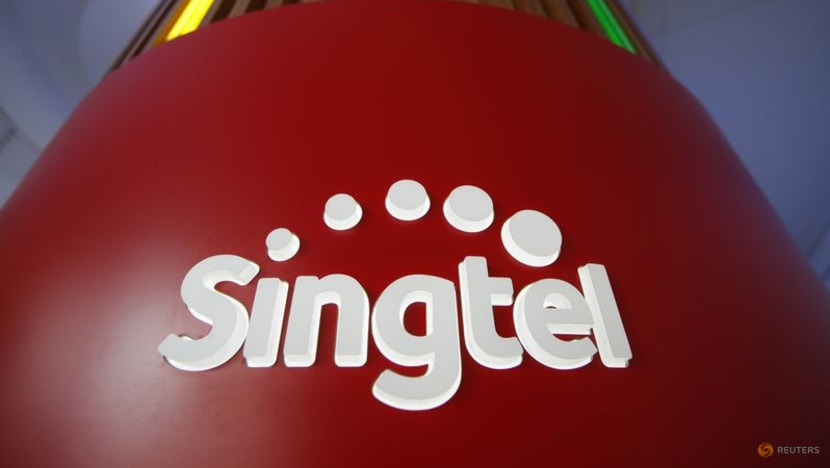Singtel's annual underlying profit rises 9% to S$2.47b, announces share buyback

A Singtel logo is pictured at their head office in Singapore Feb 11, 2016. (Photo: Reuters/Edgar Su)
Singapore Telecommunications (Singtel) reported a 9 per cent rise in full-year underlying net profit on Thursday (May 22), boosted by strong performances from unit Optus and regional associates Airtel and AIS, while announcing a new S$2 billion (US$1.55 billion) share buyback over the next three years.
Singtel, Southeast Asia's largest telecom firm, said its underlying net profit for the full year ended Mar 31 was S$2.47 billion, up from S$2.26 billion a year earlier, but slightly below the Visible Alpha consensus estimate of S$2.56 billion.
Optus reported a 5.7 per cent growth in full-year earnings due to improved core mobile performance.
Post-tax contributions from the company's associates grew 13 per cent, mainly driven by India's Bharti Airtel, which nearly doubled its quarterly profit on higher tariffs and subscriber growth.
"Notwithstanding the company's encouraging performance, macroeconomic and geopolitical uncertainties caused by volatility in tariff policies persist," CEO Yuen Kuan Moon said in a statement.
While tariffs have no direct impact on the company's business, which is primarily in services, the trade conflict could affect it indirectly through softer consumer and business sentiment, Singtel said.
The telecoms firm expects earnings before interest and taxes (EBIT), excluding contributions from associates, to grow in high-single digits in fiscal 2026. Its EBIT grew 20 per cent in fiscal year 2025.
After selling a 1.2 per cent stake in Airtel for S$2 billion last week, SingTel said it has surpassed half of its S$6 billion mid-term asset recycling target and has now raised the goal to S$9 billion.
"The progress we've made in our ongoing capital management puts us in a position to return more to shareholders," CEO Moon said.
The company declared a final dividend of 10 Singapore cents per share, higher than 9.8 cents declared last year.
Singtel's group chief financial officer Arthur Lang said the company's underlying net profit "was very encouraging for us".
The growth of Optus and its subsidiary NCS was a result of "very disciplined cost management", with a focus on margins and good execution on the businesses, Lang told CNA's Asia First.
"On the other side, we have our Singapore business in Singtel that's been executing well despite the extremely challenging market environment or industry that we are facing here in Singapore. But the group actually delivered very well," he added.
As for its share buyback programme, Lang said it was "very exciting" given that Singtel is doing it for the first time.
"Last year, we announced a two-pronged dividend - a core dividend as well as a value realisation dividend. This will continue, and we plan to grow that on a sustainable basis. This buyback, or the value realisation buyback, is over and above this dividend," he added.
He said Singtel wants to position itself as a "strong communications group" that can generate strong cash flows and sustain healthy dividends for its shareholders.
At the same time, it wants to focus on addressing stock price volatility amid the current market environment and ensuring long-term shareholders continue to benefit, he added.
Lang reiterated that the direct impact of tariffs on Singtel would be "very limited", but added it was "way too early to really put a number" to it.
"I would say the good thing that's going for us is that we have this momentum, in terms of focusing on the operations. We actually are continuing to improve on margins and continuing to improve on the business by basically operating a lot more efficiently and profitably," he said.
"We have also, fortunately, in the past few years, we went through a very painful process of getting rid of all the unprofitable businesses that we've had ... so that now today, we're in a much stronger position."













